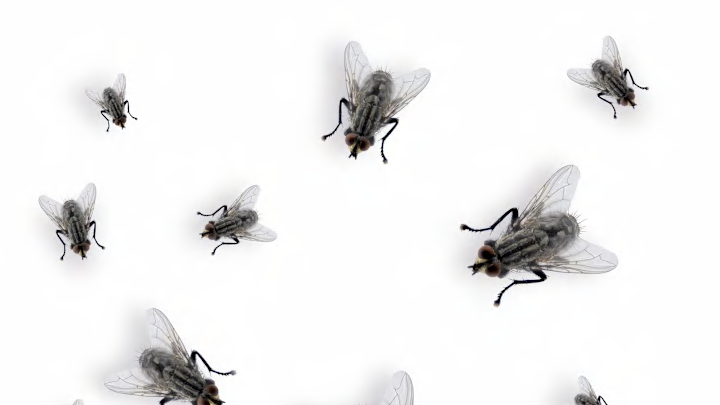It’s no secret that many types of insects, such as bees and butterflies, are essential to the environment. Animal pollinators are primarily responsible for propagating three-fourths of flowering plants worldwide and almost 35 percent of food crops, per the U.S. Department of Agriculture. Though people generally view flies as annoying, even they play a vital part in our ecosystem, as reinforced by a new study published in Biological Reviews.
According to The Washington Post, scientists from Australia’s James Cook University and the United Kingdom’s University of Exeter determined this by examining the migratory behaviors of the order Diptera, consisting of two-winged “true flies.” They specifically analyzed the flight patterns and prevalence of the insects and found that 47 percent (60 out of 130 species) of flies show evidence of migration practices.
These flies cover a wide range. After hypothesizing migration routes based on their findings, the researchers concluded that flies migrate to all continents, even Antarctica. The insects can travel long distances and maintain flight using a plethora of aids, including wind speeds, sun, polarized light patterns. During their treacherous journeys, flies give back to the environment by distributing nutrients across the globe. Many species lay their eggs in decomposing carrion. The larvae that hatch within and feed on the dead matter then grow into migrating flies that disperse those nutrients. In addition to breaking down dead plants and animals, flies also pollinate many major food crops and prey on pests that eat crops.
The study even shows that some species of flies migrate more than butterflies, whose migratory behaviors are generally more studied. The authors note that the relocation patterns of butterflies, moths, and dragonflies are studied more frequently because they’re more “charismatic” and not viewed as pests the way flies are. However, this new research proves that flies deserve equal appreciation, as they also benefit the planet in a myriad of ways.
Read More About Insects:
